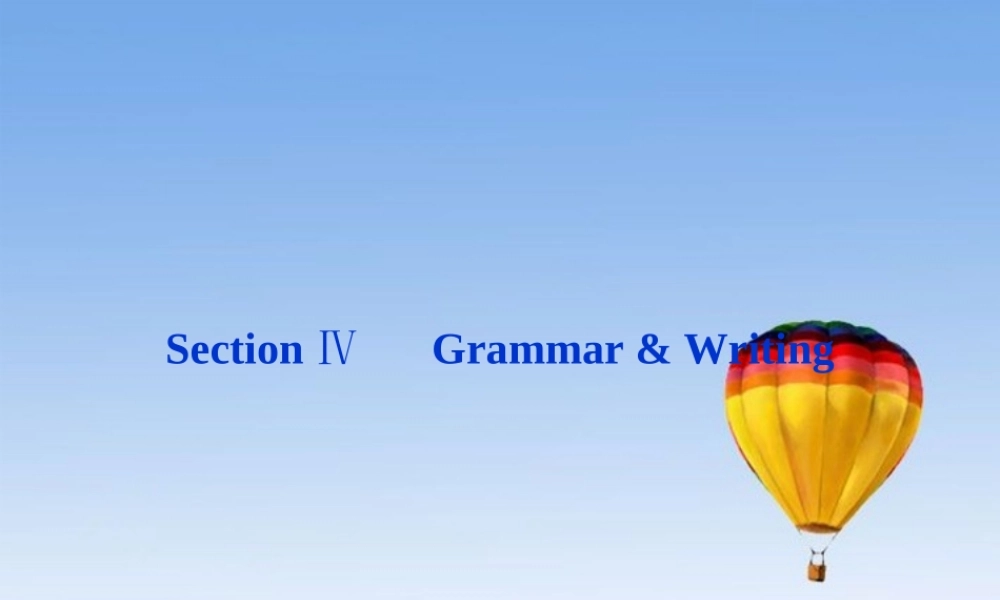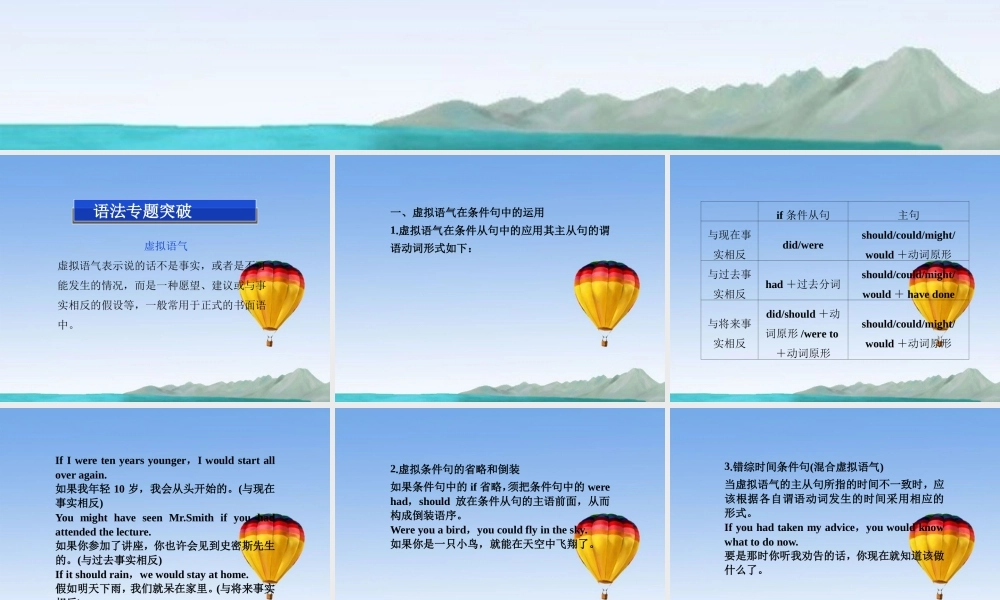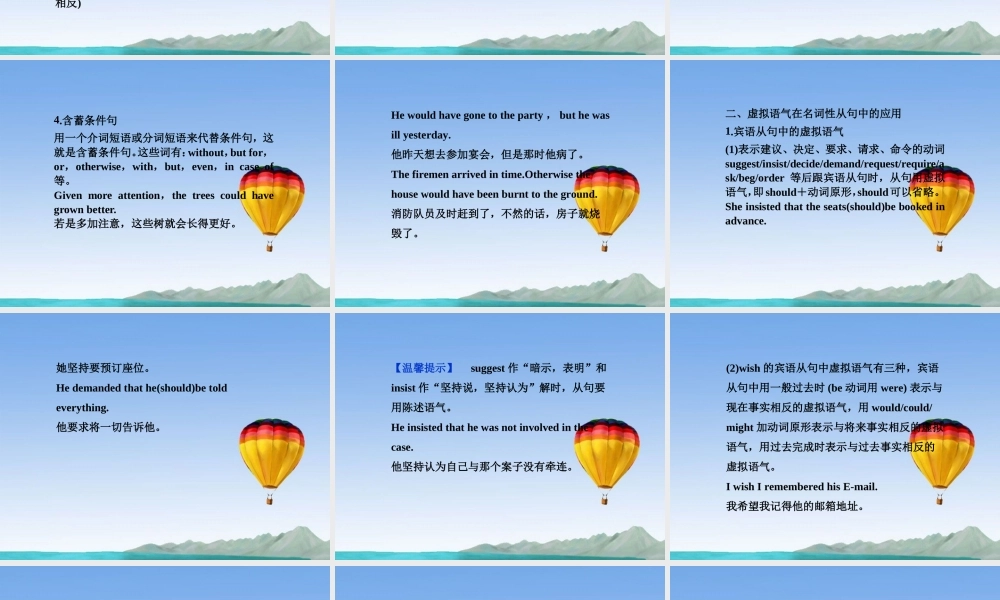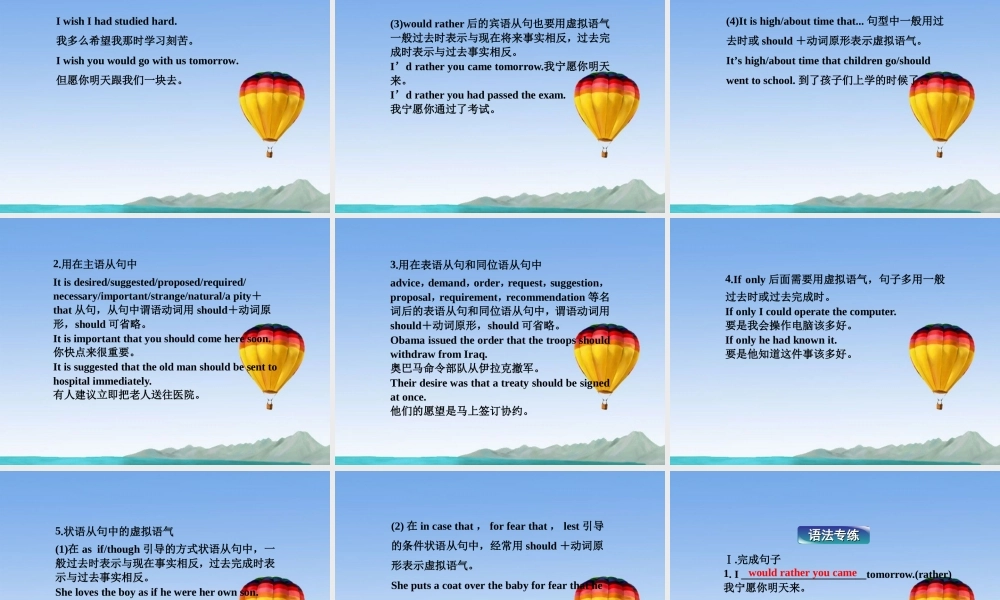Section Ⅳ Grammar & Writing虚拟语气虚拟语气表示说的话不是事实,或者是不可能发生的情况,而是一种愿望、建议或与事实相反的假设等,一般常用于正式的书面语中。语法专题突破一、虚拟语气在条件句中的运用 1.虚拟语气在条件从句中的应用其主从句的谓语动词形式如下: if 条件从句主句与现在事实相反did/wereshould/could/might/would +动词原形与过去事实相反had +过去分词should/could/might/would + have done与将来事实相反did/should +动词原形 /were to+动词原形should/could/might/would +动词原形If I were ten years younger,I would start all over again. 如果我年轻 10 岁,我会从头开始的。(与现在事实相反) You might have seen Mr.Smith if you had attended the lecture. 如果你参加了讲座,你也许会见到史密斯先生的。(与过去事实相反) If it should rain,we would stay at home. 假如明天下雨,我们就呆在家里。(与将来事实相反) 2.虚拟条件句的省略和倒装 如果条件句中的 if 省略,须把条件句中的 were,had,should 放在条件从句的主语前面,从而构成倒装语序。 Were you a bird,you could fly in the sky. 如果你是一只小鸟,就能在天空中飞翔了。 3.错综时间条件句(混合虚拟语气) 当虚拟语气的主从句所指的时间不一致时,应该根据各自谓语动词发生的时间采用相应的形式。 If you had taken my advice,you would know what to do now. 要是那时你听我劝告的话,你现在就知道该做什么了。 4.含蓄条件句 用一个介词短语或分词短语来代替条件句,这就是含蓄条件句。这些词有:without,but for,or,otherwise,with,but,even,in case of等。 Given more attention,the trees could have grown better. 若是多加注意,这些树就会长得更好。 He would have gone to the party , but he was ill yesterday.他昨天想去参加宴会,但是那时他病了。The firemen arrived in time.Otherwise the house would have been burnt to the ground.消防队员及时赶到了,不然的话,房子就烧毁了。二、虚拟语气在名词性从句中的应用 1.宾语从句中的虚拟语气 (1)表示建议、决定、要求、请求、命令的动词suggest/insist/decide/demand/request/require/ask/beg/order 等后跟宾语从句时,从句用虚...




